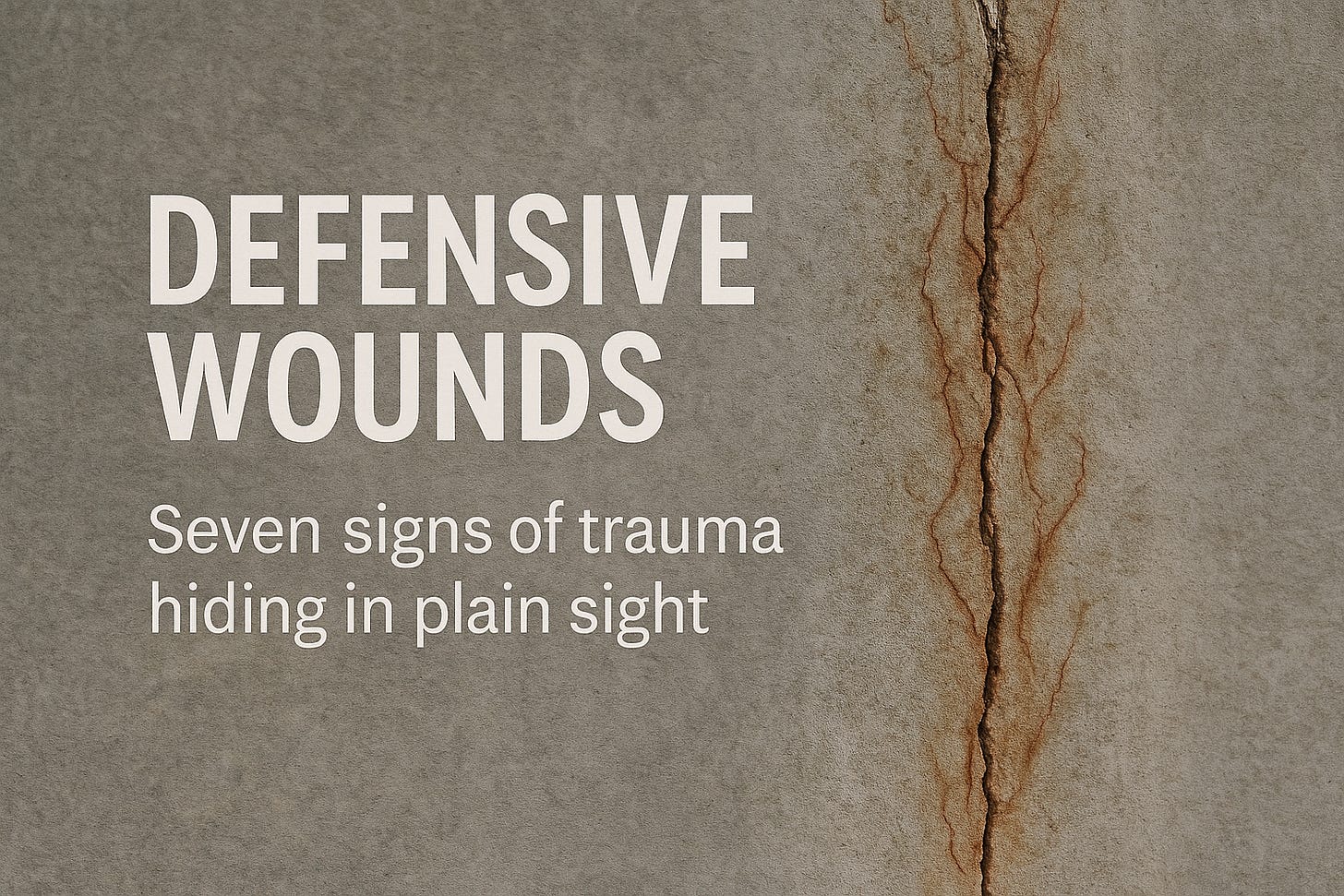Signal Capture
You might not call it trauma.
You might just think, “That’s how I am.”
Or maybe, “That’s just how they are.”
But sometimes, the behaviors we chalk up to personality are actually defensive wounds—not scars you can see, but patterns left behind by what someone had to do in order to survive.
These aren’t breakdowns.
They’re blueprints.
Survival strategies written by the body and brain when there wasn’t another way.
Here are seven signs of trauma—subtle, silent, and often misunderstood.
They don’t diagnose.
They simply invite awareness.
Pay attention.
To yourself.
To those you love.
To the parts of people that don’t make sense… until they do.
Core Protocols
Seven Behaviors That Look Like Personality, But Might Be Survival
1. Explaining yourself constantly
Because you don’t know how to just be without justifying it.
You anticipate misunderstanding before it happens. You over-narrate, over-contextualize, over-defend—even in safe spaces. It doesn’t feel like insecurity. It feels like insurance.
2. Going numb during big moments
Because your nervous system freezes when things get too intense.
Joy, celebration, even love—your body taps out. Not because you don’t care, but because feeling too much used to be dangerous.
3. Reading everyone’s mood before your own
Because at some point, your safety depended on someone else’s emotional weather.
You learned to scan faces like code. Smiles were rarely safe. Tone was everything. Now you’re fluent in microexpressions, but maybe not in your own needs.
4. Being tired all the time
Because your system has been running in survival mode for years.
Even after sleep, you’re drained. Not from laziness, but from the weight of constant internal alertness—like your body’s still bracing for something it can’t name.
5. Laughing when something hurts
Because humor is safer than truth.
Jokes let the pain out sideways. You smile when you want to scream. Not because you're okay—but because honesty once cost you more than it gave.
6. Never asking for help
Because independence became your only armor.
You stopped depending on people when depending got you hurt. Now you do it all yourself. Not because it’s easier—but because it’s safer.
7. Always feeling not quite enough
Because you were taught to doubt your worth before you could speak it.
Maybe no one said it out loud. But the message came through: love was earned, safety was conditional, and value had to be proven.
Final Transmission
None of this means you’re broken.
It might mean you’re brilliantly adapted.
Wired for defense. Tuned for survival.
And still carrying code written by fear, not freedom.
So if you see these signs—in yourself or someone else—pause.
Don’t rush to fix.
Don’t pathologize.
Just recognize.
These are not flaws.
They are defensive wounds—
and every one of them tells the story of someone who lived through what they weren’t designed to carry…
and made it anyway.
The nervous system adapted.
The soul remembers.
And the spirit is ready to come home.
[FIN/ACK]
Transmission Complete
Process Accordingly
—Protocol One
If this piece helped you rewire your thinking, strengthen your faith, or navigate tough relationships, consider buying me a coffee.
Your support keeps these transformation tools sharp, practical, and freely available.
☕ Support the work: buymeacoffee.com/protocolone



